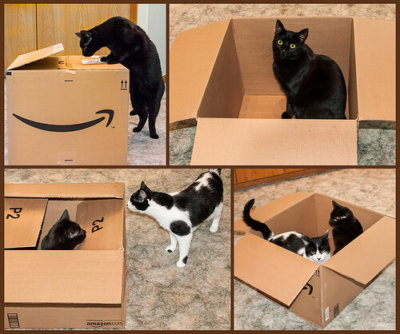Finally Met Someone, But Different Sex Drives?
Not sharing the same sex drive as a partner can be frustrating for you both.
Before you throw in the towel and assume that the relationship will never work because of different sex drives, consider the following steps.
How to navigate a relationship with different sex drives
1. Expand your timeline.
Life is rarely like the movies where sex is perfect from the first kiss.
Some people are unable to relax sexually until they have had substantial time to truly get to know and trust someone. This isn’t a few weeks or a few months, it’s at least six months or more.
Others who think they have a very high sex drive actually tend to fizzle out to more normal levels when they relax and stop trying to impress or avoid emotional intimacy.
So yes, if you already have several red flags about a new partner, and a mismatched sexual drive is yet another issue, it might be that you are not suited to each other. It happens.
But running away before something has time to develop is a far more modern conundrum. Do you have a record of short relationships? Is this whole sex drive issue just another reason to run away like always?
2. Be sure that a different sex drive is the real issue.
Yes, some people seem genetically designed to have a certain sex drive.
But it’s also possible for people to create the belief that they have a high or low sex drive, and then use this belief avoid emotional intimacy with others.

By: shankar s.
If every time you meet someone they can’t live up to your impossibly high sex drive, you have found a way to avoid the emotional vulnerability that a long-term relationship involves.
It’s the same with keeping others at arm’s length because of an apparent low sex drive.
This sort of pattern is related to childhood trauma. For example, someone who suffered childhood sexual abuse can be left with the hidden core belief ‘I must be desirable to everyone’.
They might think they need sex all the time, even when during sex they are completely disassociated. In therapy, they might discover they actually have no idea what they really like sexually.
[Read more about this in our connected article, “High Sex Drive? Why It Might Be About Something Else Entirely“.]
3. Look at the big picture.
A problematic sex life can be so all-consuming it narrows our perspective to the point we overlook the obvious in other areas of our lives.
Has you or your partner had a change in sex drive that happens to coincide with a major life change, like losing their job or experiencing a bereavement? Any life change that affects confidence often tends to affect sex drive.
If this is the case, it might be time to take the focus off sex drive and onto lowering any stress, anxiety, or depression present.
4. Get rid of boxes.

By: Sheila Sund
There are many unconscious ‘boxes’ we can bring to a relationship when it comes to sex. We of course then expect our partner to fit the box.
There is the box of ‘the way my other partners were sexually’, the box of ‘what society and media tells me a sex life should be like’, and even ‘what my parents taught me a sex life should be like’.
What if all your ideas of sex and intimacy are just that – ideas? And perhaps a good sex life is unique to the people it is between? What if there are ways of enjoying a healthy sex life that are not what you expected?
It can be as simple as recognising that your partner just isn’t the traditional ‘before bed, possibly again in the morning’ type, but only functions in late afternoons. Or it might be about exploring sexual play and finding things that turn you on that you never thought of before.
5. Beware of communication errors.
You’ve heard it a million times already – sex works best when there is communication.
But all too many times people use the excuse of communication to lay on the blame and shame – which are surefire ways to kill sexual attraction in our partner.
This is hidden in statements like ‘you make me feel ugly if you don’t want sex with me’, or ‘I’ve lost my confidence because you don’t seem to want sex with me/ only seem to like me for sex’, and ‘I used to feel good about sex until I met you’.
Instead, take out the ‘you did/you said’ statements and try “I feel” statements, staying open to the idea you might not always be right. So you might even want to try something along the lines of, “I know I am not always right about everything, and I can sometimes misunderstand things, but I feel (this way) when you do (this thing)”.
6. Get clear on your relationship purpose.
Is it a crime to be in a relationship where sex is not a central theme? Modern day media would have you think so.
But if that’s been all your relationships to date, and now you are in one with less sex than you are used to, take time to consider what else this relationship offers you. Is it an experience of real connection and authenticity you’ve lacked?
If you took away the idea that you had to find Mr. or Mrs. “Perfect and Forever”, how would you feel about being in this relationship? Is there something here you’d like to explore?
7. Consider couples therapy.
Yes, you knew it was coming. But here’s the thing about couples counselling– it works.
The idea that couples therapy is just for married people is incorrect. It’s good for any stage of a relationship where you need support.
If you have been with someone for several months and are not sure that it can continue to work with your different sex drives, a few sessions with a couples counsellor can help you clarify what changes are possible for you.
Therapy means you continue forward with a renewed connection, or you can let each other go without the drama and damage that a breakup based on conflict can create.
Harley Therapy connects you with couples counsellors in central London locations. Not in London? Did you know you can now try couples counselling via online?
Have a question, or want to share an experience about different sex drives in relationships? Use our public comment box below.






im sexually frustrated.
always meeting pretty woman and getting used by them with no sex involved,
Hi Owen, we are sorry to hear you are feeling so used and rejected. How are your communication skills with these women? Are you clear from the start you want to date them, or do you play the friend card in hopes that things will change? Sometimes, before we start thinking that everyone is using us, we need to get clear on how we ourselves are contributing the situation. Because if we engage in ‘relationships’ without being honest about our real intentions we ourselves could be accused of using people and manipulating.